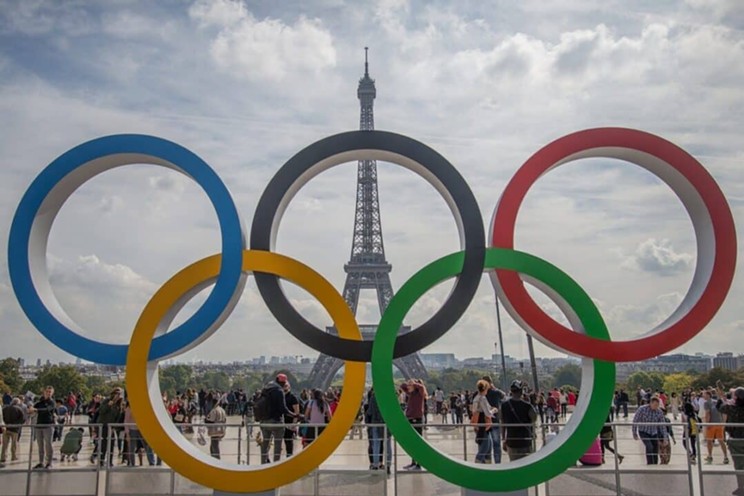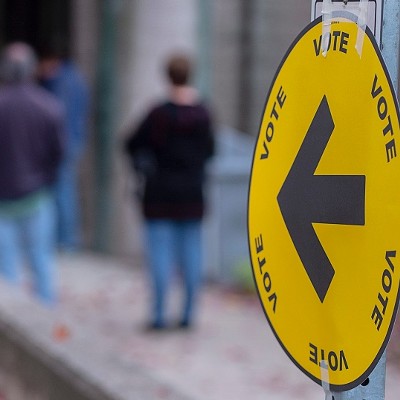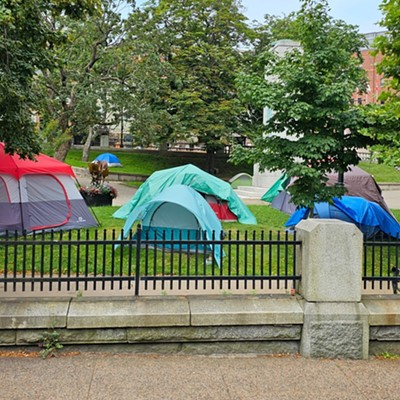The Paris 2024 Olympics are coming to a close this Sunday, Aug. 11, with women’s basketball as the final event that day. The Games have shown us—once again—that sport embodies a mixture of the good, the bad and the neutral. Team Canada has had many highs, including the historic silver medal win by the women’s rugby sevens team against Australia and swimmer Summer McIntosh breaking records with her gold-medal win in the women’s 200-m butterfly.
Then, there have been lows, like the coach of the women’s soccer team being suspended for a year following “dronegate,” and Canadian triathlete Tyler Mislawchuk vomiting 10 times from extreme heat and other reports of sickness from triathletes and marathon swimmers who swam in the Seine River amid concerns of its E. coli levels. The scorching temperatures in Paris are making it unsafe for all athletes to compete, and throw into question whether the Summer Games can even continue in the unfolding climate crisis . The city walked back its plans to use air-conditioning in the Olympic Village as an eco-friendly initiative, instead allowing teams to order and pay for their own portable air-conditioning units to be installed for the duration of the Games.
Off the field, activists in Paris have been protesting against the Games themselves—including for their environmental impact on the planet, the shadow of the war in Gaza cast on the Games and the social displacement of hundreds of underhoused people from the city ahead of competition. The large demonstration of protesters on the eve of the Olympics opening ceremonies included trade union members, environmental activists, civil-liberties groups and residents of the Saint Denis area, where much of the Games are being held.
Demonstrators from the environmental activism group Extinction Rebellion were stopped and searched by police as they attempted to hold a protest in Paris, on Sunday July 27. Two freelance journalists were arrested by French police on July 28 for covering the activist group Saccage 24, who were organizing a protest tour of the Olympics called “Destruction 2024.”
So, what is a sports fan in Nova Scotia supposed to make of all this? Ornella Nzindukiyimana has dedicated her life to loving sports. She is a sports historian and assistant professor in the Department of Human Kinetics at St. Francis Xavier University. “It’s because I love sports so much that I want to improve it,” says Nzindukiyimana.
“I'm not satisfied with the status quo.”
She was on the edge of her seat watching the Canadian women’s soccer team defeat Colombia 1-0 to advance to the quarterfinals—a long shot outcome considering the team had taken a serious hit in the standings as a punishment for their coach’s spying.
The St.FX prof also highlights the triumph of the Canadian women’s rugby sevens team, who won an historic silver medal after beating Australia in the semi-finals, the team Canada lost to at the Rio Olympics in 2016. “You're seeing a team that has come from behind after 2016, to deal with the case of complaints against former head coach, John Tait, of harassment and bullying towards players,” says Nzindukiyimana. “When they lost to Australia last time, they were embroiled in this psychologically and emotionally draining conundrum—and this year they've finally battled out of it.”
Rugby sevens is relatively new to the Olympics, introduced in the 2016 Games.
Nzindukiyimana outlines the harms caused by the Games, including legacies of environmental degradation; social displacement, gentrification, exploitation and hyper-militarization wrought on host cities; unequal decision-making power for athletes and unequal profit sharing; high overall carbon footprints that, in turn, are making the Summer Games soaring temperatures unsafe for athletes; and a Westernization of the Games, based on the outdated vision of a French baron in the 1890s that separates the vision of the Games from reality.
Nzindukiyimana also points to the political implications of the militarization efforts “made under the cover of the Olympics in order to occupy a country permanently.” Of course, she says, everyone wants the Games to be safe. “But, safety at what cost?” This year, there’s an unprecedented number of police, soldiers and guards on the ground in Paris. Canada has sent soldiers to Paris, too, says Nzindukiyimana. “The cooperation happening on the field of play is also happening in this militarization effort.”
Olympic Paris is bringing together athletes from all over the world. It's also bringing together police from around forty countries. Most from Europe. Also Brazil, Canada, Chile, Morocco, Qatar, and South Korea. Not just protecting games but policing Parisians. Many not thrilled!
— Dave Zirin (@EdgeofSports) July 30, 2024
France introduced a controversial new law to legalize artificial intelligence (AI) video surveillance for the Games—technology that is supposedly in place until 2025. This experimental safety measure has received criticism for turning the city into “a privacy nightmare” or a Big Brother-styled panopticon.
Then there’s the environmental impact of the Games, beginning with flying in athletes from all corners of the world. That means rethinking the Olympics could result in holding the Games’ events in separate corners of the world, says Nzindukiyimana, “which may undermine the whole idea of coming together, but it's not like treaties and diplomatic decisions have been made at the Olympics—or that athletes are meeting to stop conflicts that their nations may be involved in.”
In reality, she says, the more professional the Games have become, the more athletes are there for their medals more than cross-cultural socialization. This year, Global Athletics, which manages track and field worldwide, announced they would be awarding all gold medal-winning athletes with $50,000 USD prize money—and this decision has received much criticism from inside and outside of the IOC. Some see it as widening the gap between nations. Others see it as weakening the athletes' movement to unionize and act as ambassadors who will shelter the Games from criticism.
Then there are the outdated “very questionable” origins of the modern Olympics themselves, says Nzindukiyimana. “Let's put a pause on them, study and get a better rendition.” The world is not the same as it was in 1896 when aristocrats and royals devised a way “for the Western world to disseminate this idea of what the world should be, as to the rest of the ‘non-developed world,’” says Nzindukiyimana. “The Olympics have remained a Western vehicle—despite being an international event, nearly all but maybe three events are European in origin.
“We're not competing in Mongolian horse racing events, or events that originate in other parts of the world, so that [Western] focus is there very starkly and—you can argue about it, but—it's also there in who's making decisions.”
The IOC is an entitled group. Of the 111 members, at least 10 have royal or aristocratic titles. Of their 38 honourary members, at least six do. Says Nzindukiyimana: “You have to ask yourself when all of those people are in the room, whose interests are they serving?”
But the real problem, Nzindukiyimana says, is that all this attention dies down after the Games wrap.
“Most people tune in only every four years,” she says. “And they're either annoyed by it, as non-sports people, or tune in for this and then get out without understanding the context.”
She wants a wider and sustained awareness and questioning of the history, functioning and purpose of the Games “so that people can understand, ‘Listen, there’s the feel-good part when you see a team win, or events, where someone helped someone or Canadians, helped another team, and you feel super Canadian for seeing that’—and that kind of stays at the forefront of your mind so that you you have trouble integrating any adverse narrative around it.”
Nzindukiyimana suggests that instead of stopping at the feel-good part, one should learn what really goes into an Olympic Games.
“People in Paris are not happy,” she says. Indeed, they organized in the thousands a “counter-opening” ahead of the games against the widespread social displacement of unhoused people from Paris; against Israel’s participation in the Games despite the country’s ongoing military action against Gaza; against the question of who such a large event benefits when it lands on a city; and against the hyper-securitization of Paris during the Games.
Nzindukiyimana says listening to these local protest movements to understand why the Games should be changed “would go a long way.” To dig a little deeper, she suggests people pay attention to cities like Boston, where a groundswell of local protest forced it to forgo its hosting bid. Or, check out the NOlympicsLA movement, which is organizing against Games scheduled to be held in LA in 2028. Their website puts it succinctly when it reads: “the Olympics always accelerate policing, evictions, inequality, exploitation, and the erosion of democracy in every host city—The LA 2028 games are no different.”
Sports scholars and journalists are integral in showing “how unsustainable [the Olympics] are at a fundamental and practical level.” Nzindukiyimana uses her X account and her teaching at St.FX to offer a critical and nuanced lens to storytelling at the Olympics versus the “sanitized, hyper-nationalist, feel-good factors these events will often represent.”
Nzindukiyimana says the mainstream media don’t often tell these stories because many have invested millions in owning the rights to cover the Games.
“The reality is that the mainstream media is not going to cover anti-Olympics stories as extensively,” Nzindukiyimana, “because they have a stake in it—they've bought in and need to recuperate all that money.”
At the end of the day, Nzindukiyimana is a scholar and a teacher. "So I advocate that if people know more and understand the stakes, then, hopefully, they will pressure their government into completely refusing to host [the Olympics] so we can get that ball moving.”
Changing or adding to narratives surrounding the Games is “difficult because, once they start, everybody gets lost in the overall hype and storytelling, which is difficult to fight against—but that’s what’s needed.
“I don't know what the world will look like in 50 years, but we definitely can't have these continue [as they are] considering the deterioration happening in the social, cultural, political and economic spheres around the world.” The Olympics should pause, regroup and change—or end.
“When I speak of radical change like this, it's not against sport, but it's for sport—I'm not satisfied with the idea that what we have is how it should be—and that this is as good as it gets.”
gd2md-html: xyzzy Thu Aug 08 2024











